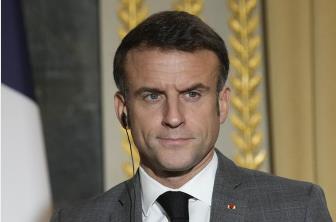
Egypt has brokered a cease-fire between Hamas and Israel. US President Joe Biden praised his administration for the “quiet and relentless diplomacy” undertaken to reach the agreement, while UN Secretary-General Antonio Guterres called on both parties to resume peace negotiations and urged the dispatch of humanitarian aid to Gaza.
However, the truce does not mean the end of atrocities, merely the closure of one round in a long-term conflict. There will be no sustainable cease-fire or peace unless there is a definitive agreement between Palestinians and Israelis — and Israel is the only party that can bring such an agreement to life.
While the Western media covered the 11-day bombardments as clashes between Israel and Hamas, the reality is much deeper than this. It is about people who are fed up with being occupied, humiliated and denied their basic rights. The situation is no longer sustainable and Israeli policies have worked toward consolidating the status quo to the point that the two-state solution slipped out of the political discourse.
Israelis today are more insecure than ever after Hamas rockets were able to penetrate the Iron Dome, and the group is now equipping its arsenal with drones.
However, the key to getting rid of Hamas is not to carpet bomb Gaza. On the contrary, this will drive Gazans to rally around Hamas. They key to beating Hamas is to dry up its social incubator, and this can be done only by enforcing a definitive and just solution that can guarantee the security and dignity of Palestinians.
Israel pushed Palestinians to opt for Hamas when it emasculated the PLO and demonstrated its inability to deliver on the promise of a state for the Palestinians. Multiple rounds of negotiations over 30 years resulted only in more land grabs and settlements. The evictions of Sheikh Jarrah were the straw the broke the camel’s back.
Israeli policy is aimed at appeasing Palestinians with interim arrangements, hoping that one day they will relinquish on what Israel views as a maximalist demand, which is a Palestinian state. However, this will not happen. Palestinians will not accept occupation and they will not leave their land. Their identity as Palestinians is ingrained in their national consciousness.
The policy followed by Israel today will not make Israel safer; on the contrary, it will render the country more vulnerable. By maintaining the cause for discontent, Tel Aviv is only putting the lid on the clashes for a short time. Meanwhile, people’s anger is brewing.
On the other hand, Israel is de facto pushing for a one-state solution. In this case it will definitely lose what Israelis want, which is to have Israel as a Jewish state. There lies the problem, but there is no Israeli leadership that can face the reality and speak frankly to its constituency. Each politician is worried about political survival. Each politician worries that a two-state solution and the end of occupation will be political suicide. Today, Israel’s politicians are cowing to settlers’ groups and choosing to ride a populist wave rather than take rational decisions.
If the bombing stops today, will the demonstrations end? Will the tensions between Jewish Israelis and Palestinians living in Israel disappear? That is unlikely. The recent fighting has left its wounds not only on the bodies of the people in Gaza and Israel, but also in the hearts of those who survived the clashes on both sides. The mistrust is stronger than before, and the bitterness and insecurity are sturdier than ever.
While world leaders are calling for both parties to resume peace talks, negotiations are likely to yield no result as has been the case during the past 30 years.
Israel needs to come up with a solution that is definitive. No one can offer that solution except Israel. The US has tried several times and failed. Barack Obama tried to deliver a solution but immediately retracted after facing the belligerence of Israeli leader Benjamin Netanyahu. As Obama’s vice president, Biden knew the difficulties of getting involved in the Palestinian-Israeli conflict, hence his policy aimed not at solving the conflict but keeping it under control at best. The Arabs proposed the Arab Peace Initiative 19 years ago only to get the cold shoulder from Ariel Sharon, despite the fact that their initiative received global support. The Israelis have to realize that they must agree to a just solution, based on UN resolutions. They are the occupying party.
Israel needs to think long term beyond the current clashes. It needs to think how it can bring about an end to the conflict so that its children can also grow in peace. It is clear that decades of oppression has not weakened the Palestinians (and their supporters) or exhausted them. On the contrary, it has left them more determined. Though making such a proposition might be political suicide, the Israeli politician who does so will garner global support, and from the international approval can start building a grassroots base at home.
The last confrontation also showed that Palestine is still a cause that is dear to the heart of every Arab and every Muslim, and with each round of clashes the damage will not be restricted to Palestine and Israel but will result in increased tensions that our volatile region badly needs to avoid. The clashes should be a wake-up call to the Israelis and should remind their politicians to face reality before it is too late.
Dr. Dania Koleilat Khatib is a specialist in US-Arab relations with a focus on lobbying. She is co-founder of the Research Center for Cooperation and Peace Building, a Lebanese NGO focused on Track II. She is also an affiliate scholar with the Issam Fares Institute for Public Policy and International Affairs at the American University of Beirut.











